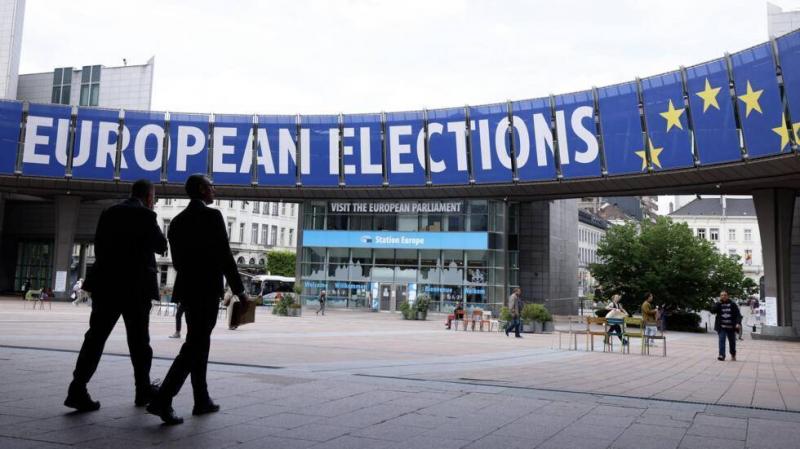Tens of millions of voters cast their ballots today, Sunday, to elect members of the European Parliament, with the far right achieving gains in several countries, which may impact the political trajectory of the European Union over the next five years. The 720 members of the European Parliament are being elected against a backdrop of concerns related to the Ukrainian crisis and significant challenges regarding the economy and immigration. Citizens of 21 out of 27 EU countries, including Germany, France, and Spain, are voting on the final day of the electoral marathon that started on Thursday in the Netherlands. In total, over 360 million voters have been called to the polls.
In Germany, the largest economic power in the EU, the far-right Alternative for Germany party secured second place with around 16.5% of the vote, behind the conservatives. Despite recent scandals surrounding its lead candidate, Alternative for Germany surpassed the Social Democratic Party (14%), to which Chancellor Olaf Scholz belongs.
In Austria, the far-right Freedom Party received 27% of the votes, becoming the largest political force in the country, according to polling results published late in the afternoon.
In France, initial estimates following the closing of polling stations indicated that the far-right party won the European elections with a percentage ranging between 31.5% and 32.5%, double the result achieved by President Emmanuel Macron's party, according to estimates from polling institutes "Ifop" and "Ipsos." The presidential majority party ranked second with 15.2% of the votes, while the social-democratic bloc led by Raphael Glucksmann came in third with 14%.
More than 360 million Europeans were called to vote to choose 720 representatives in the elections that began in the Netherlands on Thursday.




